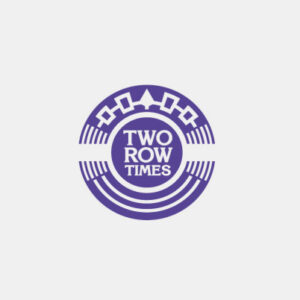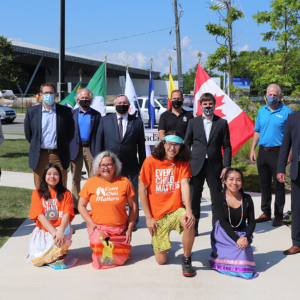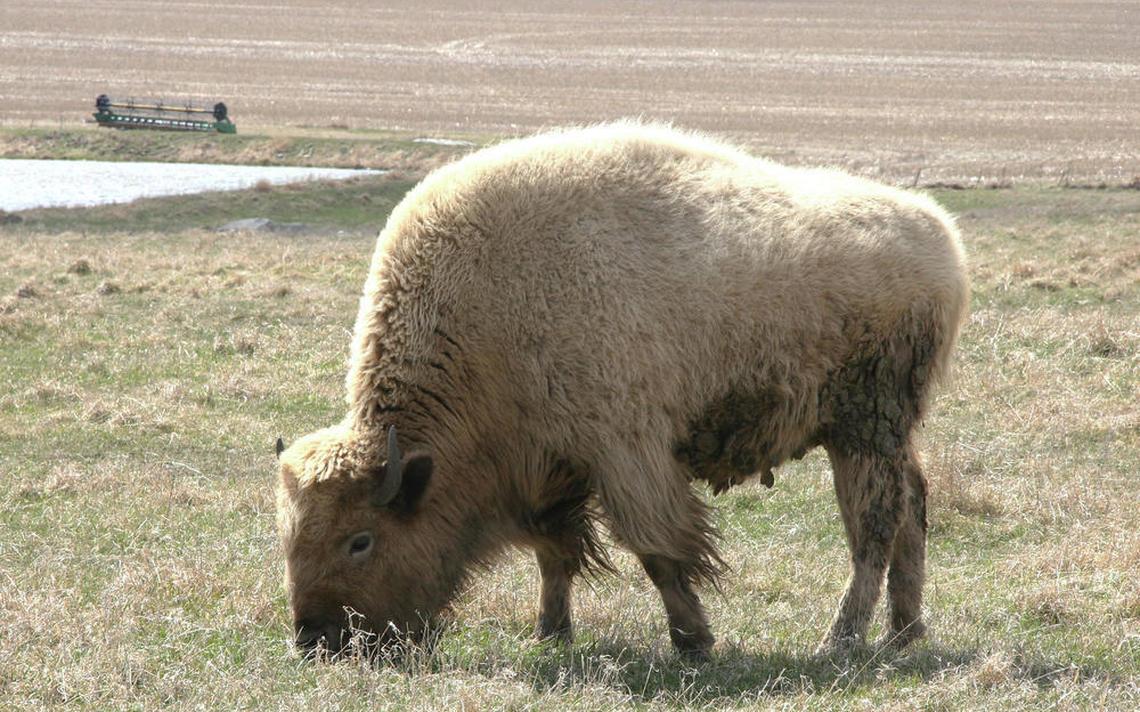 ALBANY – A verdict of Not Guilty on all counts was returned by a 12 person jury in the federal case involving the Three Feathers Casino. The decision affects three of the five defendants.
ALBANY – A verdict of Not Guilty on all counts was returned by a 12 person jury in the federal case involving the Three Feathers Casino. The decision affects three of the five defendants.
Two members of the Akwesasne Reserve Men’s Council (Wolf Clan representative Rarahkwisere and Bear Clan representative Kanaretiio) and Joseph Hight of Georgia, a gaming equipment vendor, were present for the jury announcement.
Two other defendants from Akwesasne, Anthony Laughing Sr. and Men’s Council member Sakoieta continue to face criminal charges in the case. All five were originally accused of operating an illegal casino in Hogansburg, New York, as well as possessing gambling equipment.
The verdict was announced on December 12; the trial began in late October. The jury heard witness testimony for six weeks. The defense rested their case after one day.
Lead defense attorney Lawrence Elmen represented Kanaretiio. Elmen was appointed by the federal court system after the previous two attorneys for the Men’s Council members were dismissed over a conflict.
The Assistant United States Attorneys prosecuting the case were Elizabeth Horsman and Miroslav Lovric. Horsman is known in Akwesasne for having served on the St. Regis Tribal Drug Court panel which deals with youthful offenders. She previously served as a US Attorney in Montana prosecuting members of the sovereign militias that reside there.
The prosecutors made disparaging comments about the Longhouses in Akwesasne throughout the trial. In opening statements, Lovric said that he had as much right to open a casino in Akwesasne as the Men’s Council did in 2011 with the Three Feathers Casino. Horsman raised the tension in the trial proceedings after she described the Longhouse as a non-functional system of the past. Senior Judge Thomas McAvoy of the federal Northern District of New York presided over the trial proceedings. He offered several observations to the prosecutors during the trial that they were overstepping their roles in the legal process through their demeaning statements.
The perspective among Iroquois communities is divided about the meaning of the jury verdict. Some opinions have been expressed that the jury decision was not a victory but a technicality which did not address the inherent right of self-determination among Onkwehon:we. Others argue that the Men’s Council clan representatives should never have appeared in the federal court system of the United States to begin with. One thing is sure. The families of the Akwesasne Men’s Council who heard the jury foreperson read the decision were overjoyed that their family members would be reunited with their families again. The many weeks of the trial saw the defendants from Akwesasne leaving for long road trips to Albany in the early morning hours, only coming home on the weekends.
“This trial verdict was not a victory for the Longhouse, but rather was a failure for the federal prosecutors who tried them,” stated Onkwehon:we news commentator John Kane following the announcement. “The prosecution was out of line in their witness questioning and they should be ashamed of their official conduct as public servants of the United States government” Kane said. “I would even be surprised if these prosecutors remained on this case,” Kane noted, speculating on courtroom observers who saw the Assistant U.S. Attorneys apparently losing control of a legal process that they had deliberately embarked upon in targeting the Longhouse as an apparent criminal organization, and not as a legitimate functioning government.
[slider]Kane is supporting fundraising efforts to purchase the trial court transcripts. The cost of the transcribed records is expected to exceed $12,000. Without these records being purchased, an important part of Two Row Wampum (Kaswentha) relations will be obscured and will not be available for study by Longhouse researchers.
Not much media coverage took place during the trial or even after the verdict. Most of the articles were observant of the prosecution side of the story and did not bother to seek an opposing view. Media inquiries to the Akwesasne Men’s Council defendants following their acquittals focused on the likelihood of the re-opening of the shuttered electronic bingo facility. “It is like they want to see the blood of the Longhouse on the street, if you look at what they are doing by asking that question,” John Kane observed. “There is no genuine effort at any level to go back to the stolen land in the Hogansburg Triangle and prosecute those thieves. Instead, the focus is on jailing the victims, the Onkwehon:we who live there,” Kane concluded.
The Three Feathers Casino project was initiated in 2008 when the Kanienkehaka Kaianerehkowa Kanonhsesne in Akwesasne commissioned the Men’s Council to embark upon economic development efforts to put their people to work. The involvement of mainstream legal opinions to justify the electronic gaming operation was a necessary step in working with outside equipment vendors. The threat of equipment forfeiture required the gaming vendor lawyers to look over the gaming opinions for legality. That point was raised by defense attorneys during the trial as one aspect of the arguments for the defense.
Prosecution witnesses, such as attorney Michael Hoenig of the National Indian Gaming Commission, admitted under defense cross-examination that other gaming facilities remain open without their authorization on reservations throughout the United States. These comments seemed to affect the perspectives of the jury members who later returned the verdict.
Testimony by the St. Regis Tribal Gaming Commision Executive Director on the witness stand that everything that could be done to close the Three Feathers Casino was done was refuted under cross examination. Ten “cease and desist” letters were dropped off at the bingo hall in December 2011 and then nothing else followed that correspondence up. Additionally, the penalty fine process by the two gaming commissions was never started, as is usually done in cases like these previously.







